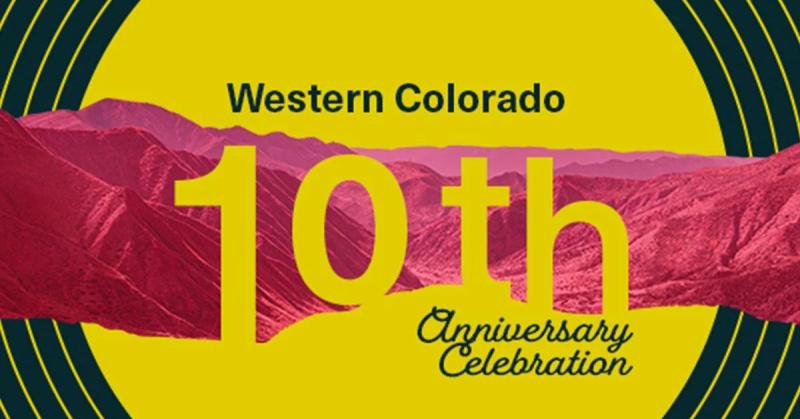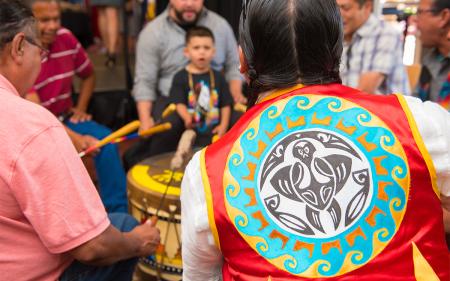Building Community Partnerships
Around 2011, key community partners in western Colorado — such as Garfield County Human Services and Colorado Mountain College — began discussing the need for more social workers in the region, and they approached James Herbert Williams, GSSW’s then-current dean, about starting a program similar to the Four Corners MSW Program. GSSW Professors Jean East (MSW ’79, PhD’95) and Karen Bensen (MSW ’91) then began exploratory work, getting to know western Colorado and its needs to determine whether a satellite MSW program was the right fit.
It was. Forbes became the Western Colorado MSW Program director in early summer 2013, and in August of that year, the first cohort of students started classes.
It was a big job. Forbes was simultaneously familiarizing herself with a new community while establishing field partnerships and building other aspects of the program from scratch. She joined boards, began volunteering and logged thousands of miles driving between mountain towns as she nurtured partnerships with government and nonprofit agencies and organizations. She recalls, “I spent a lot of face time building those relationships. In the rural context, that’s a lot of how trust and relationships are formed. In rural settings, there might be one social worker in the whole county.”
Forbes notes that in an era where Zoom is ubiquitous and online degrees are readily available, place-based programs like the Western Colorado MSW program provide something unique, especially because not all students want to learn online. Even more importantly, she says, students benefit from a cohort of approximately 20 students and a well-connected and deeply engaged local alumni and professional network. “When students go through the program, they’re building social capital in addition to building skills. They’re coming out with this rich network of relationships that will support them in their practice and in the job market.”
In fact, Forbes notes, Western Colorado MSW graduates typically have jobs even before they graduate. As alumni, they go on to give guest lectures and supervise student interns. “It’s an investment in your network, which is really important for those who stay in the area.”
Forbes says the Western Colorado MSW Program’s cumulative value and impact can be measured by the number of its graduates and the lives they touch, or by the social impact of 100,000 internship hours completed by MSW students over the past decade. What resonates most for Forbes, however, is the expansion of the region’s social work infrastructure. “I think of the programs and roles that didn’t exist before we came into the valley.”
Corcoran’s position is one of those. Women’s Health at Valley View Hospital wanted to hire its first social worker but didn’t know where to start. Forbes partnered with them to help establish the role, which Corcoran ultimately filled. Corcoran then went on to build the regional hospital’s behavioral health program.
Gair recalls that Forbes recommended an MSW student for a position with her organization, which eventually resulted in creation of the Valley Alliance to End Homelessness in Garfield, Pitkin and Eagle counties.
Ultimately, Forbes says, helping rural Colorado communities to establish a local social work infrastructure is the core mission of the Western Colorado MSW Program. “We’re here to be of service to these organizations that have asked us to be here.”






